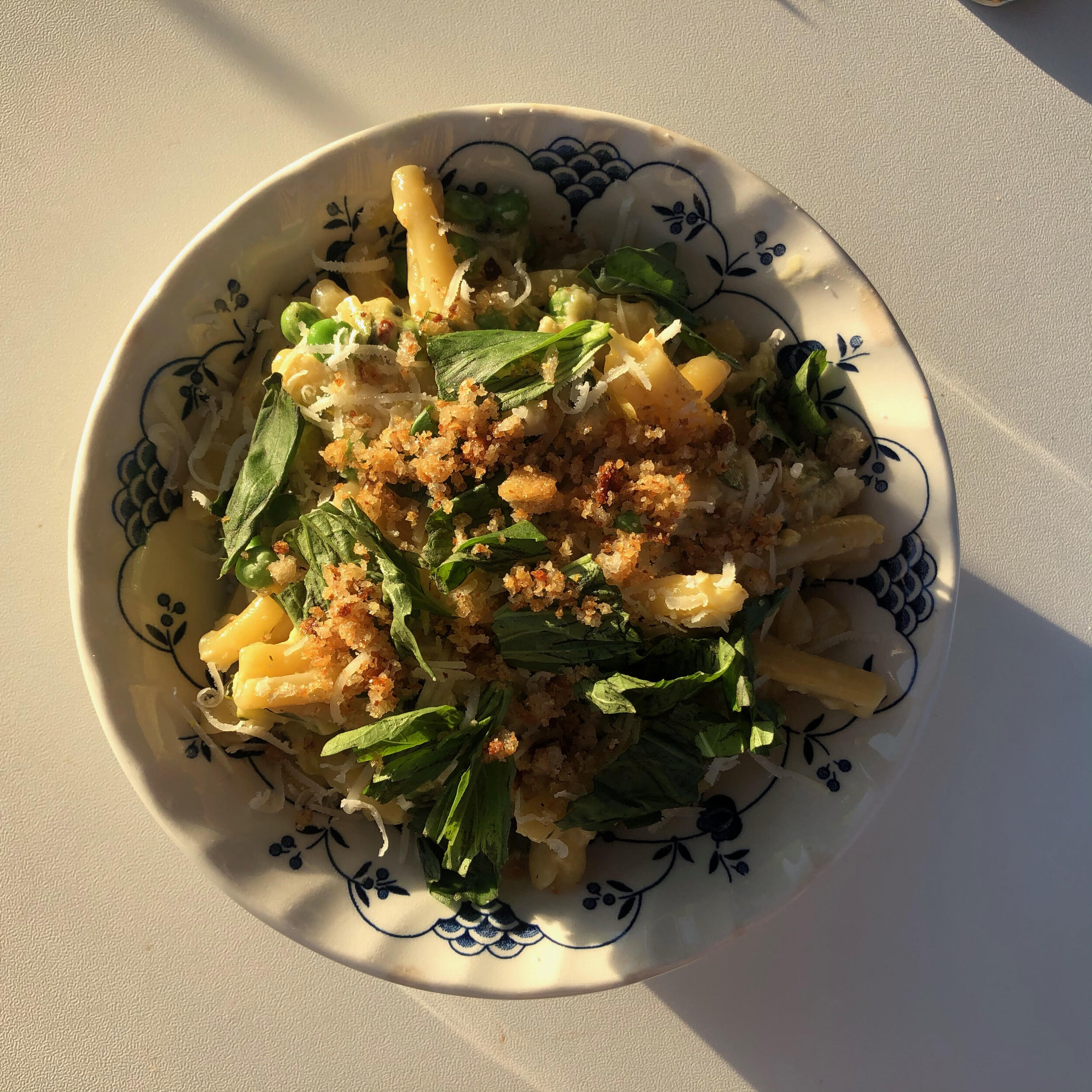Ellen Ormesher - Cooking for ________
This text was commissioned as part of ‘call + response 4: DONOR’
Image courtesy of Ellen Ormesher
I cannot remember if anyone ever taught me how to cook, though like lots of people I remember being small and peering up at the kitchen counters from which relatives – my mum, my nana – would dish out breakfast, lunches, teas.
My understanding of what cooking can mean has come from them – from all the people who have cooked for me, and from those who have allowed me to cook for them.
My nana worked all her adult life in a canteen. She is a skilled cook, able to orchestrate the preparation of large quantities of food that would please and nourish working bellies with precision. In her work, as in her home cooking, the mark of a good dinner is that it arrives well cooked and scalding hot on your plate.
My mum is a wonderful cook, and though she would say she is not an adventurous one, I would say that her inquisitive approach to food is what makes her accomplished. For years now she has asked for utensils, cookbooks every birthday and Christmas and will dedicate the next season to trying and perfecting new recipes until they become second nature to her.
Their approaches are different. My nana’s cooking is functional. If it tasted good and you are no longer hungry, it fulfilled its purpose. For my mum, cooking is an iterative process. She delights in understanding how and why certain recipes work, carefully honing her ability to make them better every time. I think she wants to know that she did the best job she could to make you happy.
Whenever my nana (my mum’s mother-in-law) comes to dinner at my parent’s house, my mum will heat the plates before the food is ready and serve it to her as she likes it – the steam still rising off it.
When I was at university, I dated someone who loved to cook and was good at it. While we weren’t always very good at looking after ourselves, or each other, the time we spent cooking together and for one another demonstrated that sometimes acts of love and care remain purest when unspoken.
Cooking for someone is a kind of care that shows not only do I want you to be nourished, I want you to feel pleasure. Here is a thing you need to survive; let me take that burden from you and make it as good for you as I can.
I know I am not alone in having cooked more in the last year than at any other time in my life. Lockdown evenings spent cooking have meant my hands and mind are occupied for a while, though I have never longed to feed other people more.
Pretty much the only person who I have been able to cook for recently is my partner – a new relationship that bloomed in the strange spaces between lockdowns.
It is always a presumptuous act to cook for someone else. To make guesses at something as personal as someone else's appetite – to presume their desires. Cooking for someone you are still learning about can be frightening because, like all offers of intimacy, it may or may not be received in the way that you hoped or intended, nor ever reciprocated.
I first learnt this through cooking for a dear pal of mine who has a notorious preference for beige food. A frustrating but mostly entertaining character trait that became my puzzle to solve in the time that we lived together, I would often find myself asking what I could make that would satisfy us both. But honouring someone’s preferences is perhaps the most important part of cooking for them.
While I know that I was not an easy person to live with at that time and that I can probably never repay what I owe to that friend, I hope that the food I made then – and hope to make for them over a lifetime – might express what I can’t.
Sometimes we need so much more from each other than anyone is able to give; sometimes what we have to give will not be enough. Cooking for someone often says what I often cannot. It fills where there is a lack. It quietly offers love where it is needed.
Ellen Ormesher is a writer and journalist based in Glasgow.
You can see what she is cooking @ellen_gourmetsher

